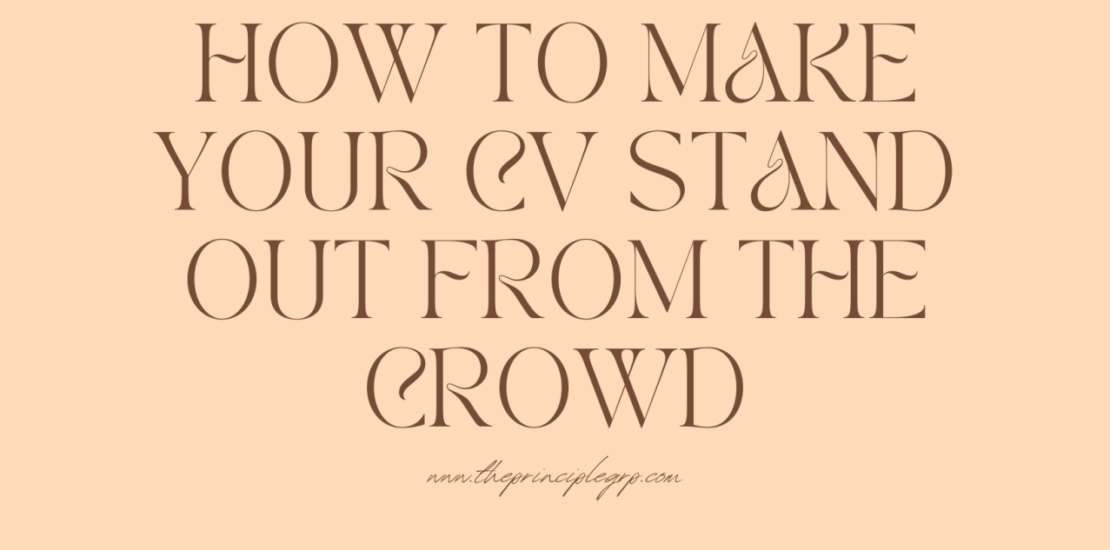- May 24, 2022
- Posted by: principlegroup
- Category: Uncategorized

In a tough candidate market, where HR is overwhelmed by CVs, a common concern for jobseekers is how they can make their CV stand out from the hundreds of other applications. Whilst in recent years we’ve seen great examples of creative CVs, such as ‘Jobless Paddy’ (the Galway man who landed a position with Paddy Power after his high profile billboard and social media campaign to help him find a job) – unless you are in a creative industry it’s best to stick to the basics when creating yours.
1. Good Base
All good CVs begin with a good base and by base I mean structure. Employers spend about 20-30 seconds scanning your CV so you need to make sure your CV can be easily digested.
Resist the urge to cram everything into 1 page and have a layout that is broken down into appropriate sections, with a clear font, consistent formatting and adequate white space.
Cramming too much into your CV will make it overwhelming to an employer so use concise sentences and bullet points. Using bullet points makes your CV easier to read and encourages you to only list the important points of your past experience.
2. The Main Ingredients – Experience and Achievements
A lot of candidates have a tendency to just state their duties and responsibilities when writing their CV without outlining their performance. You are not the only person applying for a job so how do you differentiate yourself from the competition? By demonstrating your achievements of course!
An employer not only wants to know you’ve got the necessary skills for the job but that you can add value to the role. So take a second now and think about your role, what have been your proudest achievements? What challenges have you had and what did you do to overcome them?
Aim to have at least two achievements – specific examples, rewards or performance to targets or in relation to others in team.
3. Tailoring
In my eyes not tailoring your CV to a specific job is a cardinal sin. Vague, general CVs just don’t cut it. You need to target your CV to each job sought.
Get your hands on the job description for the role you wish to apply for and then write your CV to suit this job description. It is crucial that your CV lists what is relevant and recent, or you lose the interest of an employer.
Apply the “so what?!” test to every line of your CV. If it is not mirroring a requirement of the job you are applying for, kill it! Irrelevant detail is a waste of space.
It may sound time consuming but making the effort to tailor your CV will greatly increase your chances of securing an interview.
4. Finishing Touches
If there was ever a time when perfectionism is warranted, it’s when writing a CV. The biggest bug bear of employers and recruiters alike are spelling mistakes and typos. Spell check does not catch everything so make sure you proofread and get a second pair of eyes also. Nothing shows lack of attention to detail like spelling mistakes.
As well as checking spelling and grammar, make sure your employment dates match up and that you’ve provided the right contact details.
